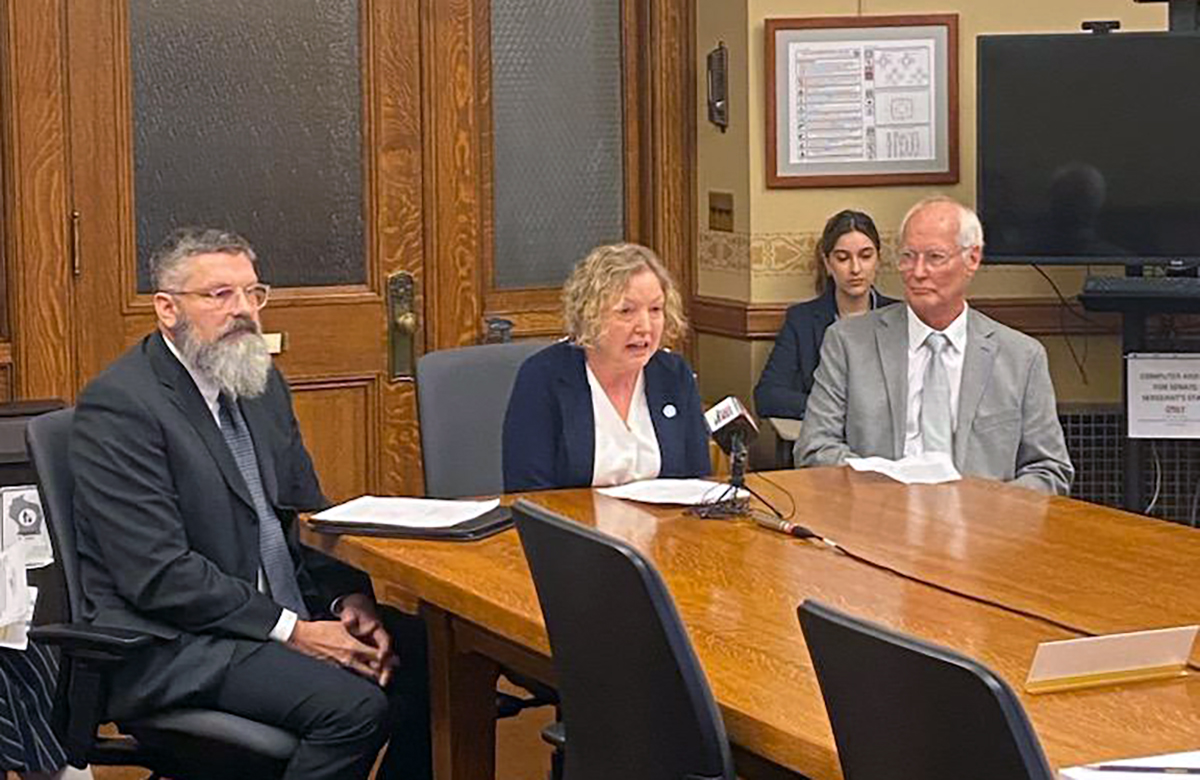The Senate Committee on Housing, Rural Issues and Forestry heard testimony from WHA, WHA members and others, including the Department of Health Services (DHS), supporting Senate Bill 643 (SB 643) introduced by the Rural Issues Committee Chair Sen. Romaine Quinn, along with Reps. Todd Novak and Patrick Snyder, and Sen. Cory Tomczyk. SB 643 provides for needed updates to the “Grow Our Own” graduate medical education (GME) grant program. In 2013, WHA worked with the governor and the state Legislature to create these grants to establish and expand GME residency slots in rural Wisconsin.
In her
testimony to the Senate Committee, WHA Senior Vice President of Workforce and Clinical Practice Ann Zenk noted “Policymakers understood in 2013 that investing in GME is an important strategy to recruit and retain physicians that will serve Wisconsin communities,” adding, “Growing more Wisconsin physicians in Wisconsin is crucial, as the inability to recruit a single physician can mean the loss of that service or specialty in a rural community.”
Zenk’s testimony also outlined the success of the program due to the strong commitment by the governor and the Legislature in 2013 and subsequent state budgets: 39 “Grow Our Own” graduate medical training program grants have formed public-private partnerships that have spurred a $45 million investment in Wisconsin GME and, as a result, 60 additional physicians for Wisconsin each year.
WHA, the Wisconsin Collaborative for Rural GME, and the Family Medicine Residency at SSM Health Monroe Hospital explained to committee members how the legislation will allow this grant funding to produce even more physicians for rural communities across Wisconsin.
Zenk noted, “Several of our current graduate medical education programs have the ability and interest to expand their training capacity beyond the existing “cap” but are prohibited from doing so by the current $225,000 limit.” She urged, “Removing the $225,000 per-hospital cap and allowing hospitals to apply for funding that would match their potential to expand training opportunities will help make use of already-budgeted funds to their full potential.”
Zenk also pointed out the importance of a component of the bill that provides assurances to expansion programs that they would be prioritized to sustain any grant commitment without the need to reapply, as long as they meet grant requirements and wish to continue within the GME expansion grant program.
Zenk briefly addressed how authorizing the use of already existing funding for physician training consortia will support rural residency opportunities that would not otherwise be available.
Joseph Kilsdonk, executive director of the Wisconsin Northern & Central Consortium for Graduate Medical Education (WiNC), and Kevin O’Connell, a practicing family physician, GME director and the WiNC designated institutional official, testified with Zenk and provided the committee with a more detailed explanation of how WiNC functions to provide shared infrastructure to rural GME programs. In response to a question from Committee Chair Quinn, they provided examples of how the inability to recruit physicians jeopardizes programs in northern Wisconsin.
 WiNC’s Joseph Kilsdonk (left) and Kevin O’Connell testify alongside Ann Zenk.
WiNC’s Joseph Kilsdonk (left) and Kevin O’Connell testify alongside Ann Zenk.
Closing out the testimony in support of SB 643, DHS Deputy Secretary Deb Standridge reflected on the hard work and importance of recruiting and retaining physicians during her career as a hospital and health system leader, including “the years I spent up north with my valued colleague Ann Zenk.” Standridge noted, “I almost got up here and said ‘ditto,’ after all of the experts we have heard from. We all realize how critical it is to build our physician workforce as fast as we can.”
All who testified urged that the Legislature pass these changes now, to allow the impact on physician training opportunities to be felt as soon as possible.